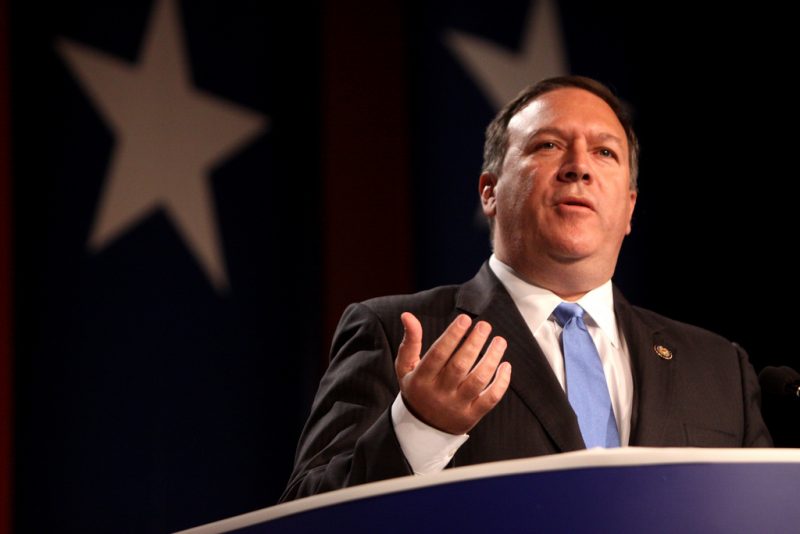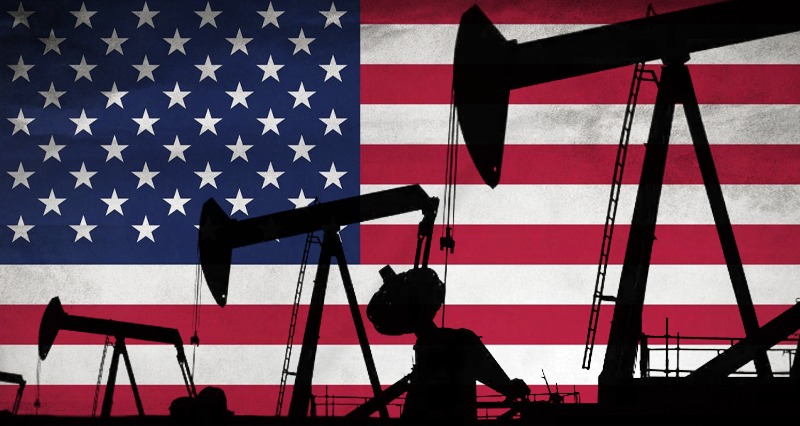Nord Stream II: Europe – Russia Cooperation
In April 2017, five European companies and the Russian State Oil Company, Gazprom, signed an Earth shaking €9.5 billion agreement. It was a vow to finance the expansion of the Nord Stream gas pipeline into Europe, providing dirt cheap natural gas to the continent – courtesy of Vladimir Putin.
At the time, it seemed like a win-win for everyone involved – cheap gas for Europe and state revenue for Russia.
But four months later, Washington jumped in to sanction Gazprom and threaten European companies who sought to do business with Russia, with secondary sanctions. Every anti-Russia card was played, from accusations of homophobia in the country to chest beating over «human rights violations.»
Now that European companies and Gazprom defiantly continue to expand Nord Stream II, the Trump Administration has launched an all-out assault on it’s energy enemies. Secretary of State Mike Pompeo is no longer sugar coating the situation. In early March, he rallied some of the world’s most powerful energy capitalists, bluntly telling them to «strengthen our hand in foreign policy.»
Although, he wasn’t only talking about closing the valve on Russia.
Washington vs. The World
Pompeo called for «punishing» all international «bad actors». And interestingly enough, they all happen to be competitors with the U.S. on the world’s energy markets.

Flickr
Take Iran for example, the sixth largest global oil producer with the world’s fourth largest reserves, as of 2018. After years of spreading dubious claims that Iran has a secret nuclear weapons program and it’s sabotage of the Iran Nuclear Deal, Washington has made its intentions clear.
«We are committed to bringing Iranian crude oil exports to zero as quickly as the market conditions will permit,» Pompeo told the energy capitalists.
And of course there’s Venezuela, the country with the largest oil reserves in the world. The U.S. is doing everything possible to see President Nicolas Maduro’s government collapse in Venezuela. They’ve declared support for self-proclaimed President Juan Guido, sanctioned the country’s economy, and seized overseas Venezuelan government assets, with Citibank now looking to sell of some of the gold booty they pirated.
Former U.S. President George W. Bush’s issued a grave threat to the world at the outset of Washington’s 2001 War on Terror – «You are either with us, or you are with the terrorists.» Bush’s words never had greater significance than today, as Trump’s Administration continues to twist the arms of long-time partners of U.S. foreign policy alongside threatening its energy competitors.
In fact, in the same breath that Pompeo called Cuba imperialist and scolded Russia for buying Venezuelan oil, he dished out a number of what many perceived to be threats. The most notable was to Venezuela’s second largest cash paying oil customer and U.S. ally, India.
“I am very confident in the same way that India has been incredibly supportive of our efforts on Iran, I am confident that they too understand the real threat to the Venezuelan people,” Pompeo said.
U.S. National Security Advisor John Bolton echoed Pompeo with regard to Venezuela, ominously stating on Twitter, «The United States is watching.
Energy Dominance or Energy Domination?
«With these incredible resources my administration will seek not only the American energy independence that we’ve been looking for for so long, but American energy dominance.»
– Donald Trump
It’s not difficult decipher that Washington isn’t really interested in friendly competition or making the world a more humane place. To «roll up [their] sleeves and compete», as Pompeo told U.S. capitalists, doesn’t have to do with the kind of free market competition you’d find in one of Adam Smith’s writings.
It means to annihilate the opposition so the U.S. doesn’t have to compete.
One of Washington’s main reasons for playing dirty on the energy markets involves protecting the standard use of the dollar in international oil exchanges. This regime keeps the currency stable, inflation low, and maintain’s the dollar’s status as the world’s reserve currency.

Flickr
But countries like Venezuela, Iran, and Russia have been looking for an alternative to the dollar, in order to break their dependency on Washington. And as long as these countries continue to be major players in the global oil markets, the dollar’s hegemony over transactions will be severely threatened.
An even greater threat to U.S. energy hegemony is emerging alongside the expansion of China’s Belt & Road Initiative. The project involves Chinese infrastructure development in over 150 countries, to build what the government is calling a «new silk road.» Unlike Washington’s policy of threatening and changing the regimes in countries that challenge dollar-supremacy, Chinese President Xi Jinping presents the expansion of this international trade network as a way to «promote people-to-people friendship and create a better future.»
And with participation reaching as far west as Italy, the U.S. is not happy. More Chinese influence in international trade means more of an opportunity for countries to trade oil in Yuan, as opposed to the dollar.
For U.S. imperialism, that’s reason enough to pull out all the stops in their attempts to exert total control over the world’s resources.

















Leave a Reply